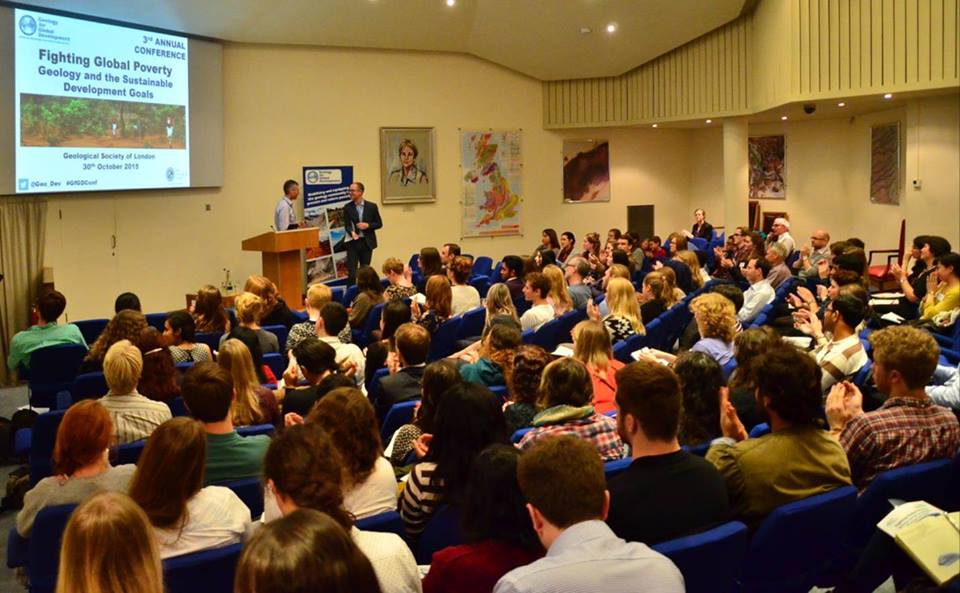2015 has been a significant year for global development efforts, with major agreements on disaster risk reduction, sustainable development and climate change. The hard work has only just started, with significant work needed over the coming years and decades to deliver real, positive change.

Fuego (Guatemala) is a currently active volcano, with risks to local populations and their livelihoods.
Sendai Framework for Disaster Risk Reduction (DRR) 2015-2030
Agreed in March 2015, this framework aims to substantially ‘reduce disaster risk and losses in lives, livelihoods and health and in the economic, physical, social, cultural and environmental assets of persons, businesses, communities and countries’. A key priority of this framework is to better understand disaster risk, meaning that science has a crucial role to play in ensuring its success.
Seismologists, volcanologists, engineering geologists and others can all support this framework through their research and practice. One practical opportunity is the UNISDR Science and Technology conference, taking place in Geneva next January. Gathering scientists of all types, and from all locations, this event will launch the science and technology roadmap for supporting the Sendai Framework. The deadline to register for this free event is 31st December 2015.
Global Goals for Sustainable Development 2015-2030
These 17 Global Goals, agreed in September 2015, aim to end global poverty, fight injustice and inequality, and ensure environmental sustainability over the next 15 years (2015-2030). Earlier this year we hosted our third annual conference, exploring these goals. We believe this was the first major geology conference around the world to ask the question ‘how can we as a community best use our skills and resources to support the UN Global Goals?’.
As noted in a previous post, achieving the SDGs by 2030 will require many sectors to engage, including the geological sciences. Many of the themes within the SDGs are pertinent to geological research and practice. This gives all of us an exciting opportunity to take a leading role in promoting and facilitating responsible Earth stewardship, ensuring sustainable and equitable foundations for future global development. Geology students, educators, researchers, industry professionals, public servants and policymakers can all contribute to the achievement of the SDGs.
You can share your ideas and experiences on how geology can best support the UN Global Goals at the next EGU General Assembly, through this relevant session (no abstract processing charges!).
COP21 – Paris Climate Agreement
Also agreed this year, earlier in December, was an agreement on tackling climate change at the Paris ‘Conference of the Parties’ (COP21). You can read an excellent summary of the key information on the EGU Blog (Geolog). Through their research on palaeoclimates, geologists have been at the forefront of understanding the underlying science. Through research in energy, carbon capture and storage and natural resources, geologists are supporting the transition to low-carbon technologies and renewable energy supplies. And through their research on natural hazards, water, engineering geology and more, geologists are understanding the impacts of climate change on the land, resources and infrastructure that we are reliant on.
Looking ahead…
From the perspective of global development, it’s been a year in which we have a lot to celebrate. Three significant (albeit imperfect) agreements have been reached that can help humanity to ensure a safer, more sustainable habitation of our planet, Earth. Reaching the agreements took huge amounts of energy and diplomacy, not to mention the years of research and consultation that have helped to shape them. Their true worth can only be measured in the years to come, as we monitor and evaluate their success. Geology doesn’t have all the answers, and can’t shoulder all the responsibility for ensuring that they are achieved in full. We do, however, have a significant role to play. Our research and practice underpins many of the Global Goals, and is crucial for improved disaster risk reduction and tackling climate change. Geologists in industry, research, governments and civil society can all make a difference.
As we leave 2015 and head into 2016, we encourage and invite you all to ask ‘what can you do this coming year to help society move a step closer to seeing the successful implementation of the Sendai Framework, the Global Goals and/or the Paris Climate Change Agreement?‘. A simple first step could be to commit to reading each of them in the first three months of 2016!
We also take this opportunity to wish you all a very Merry Christmas and Happy New Year.

